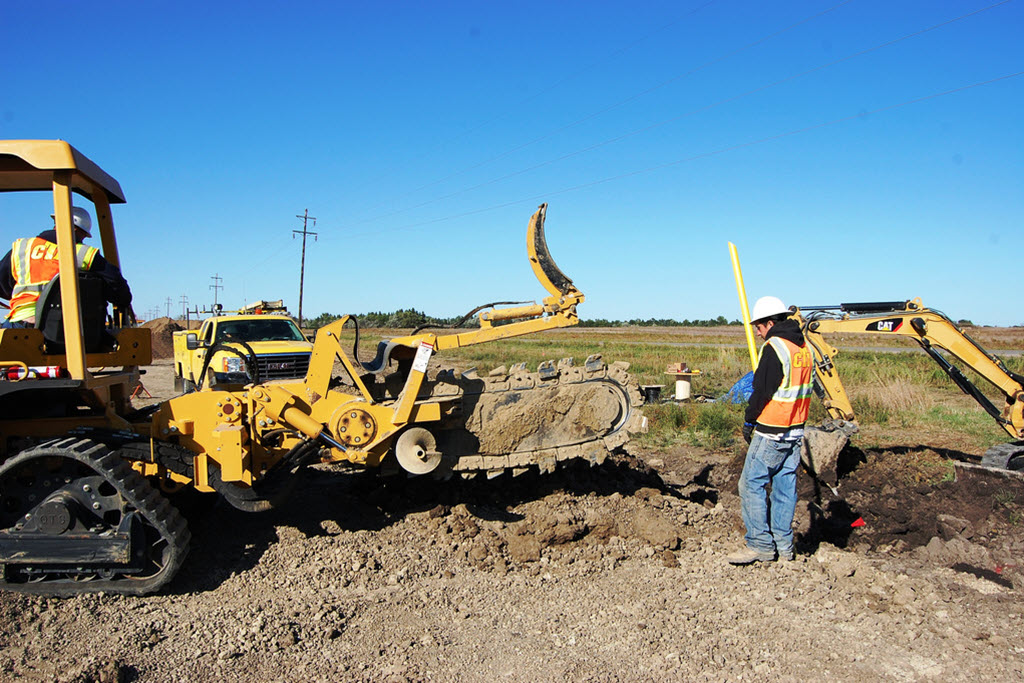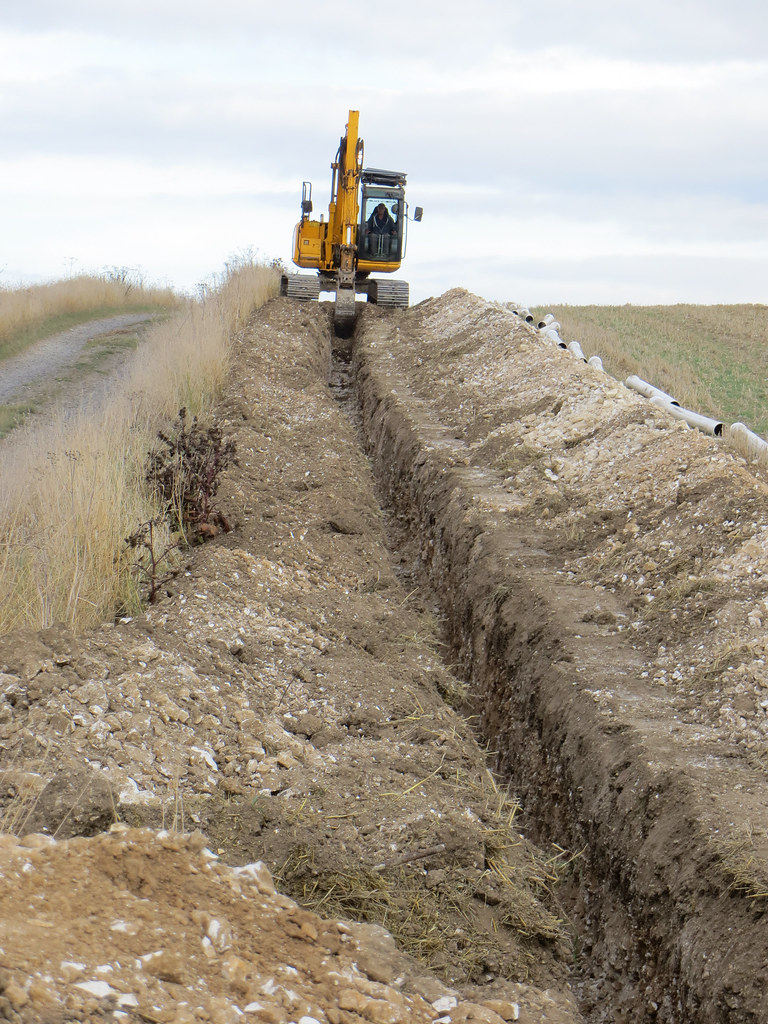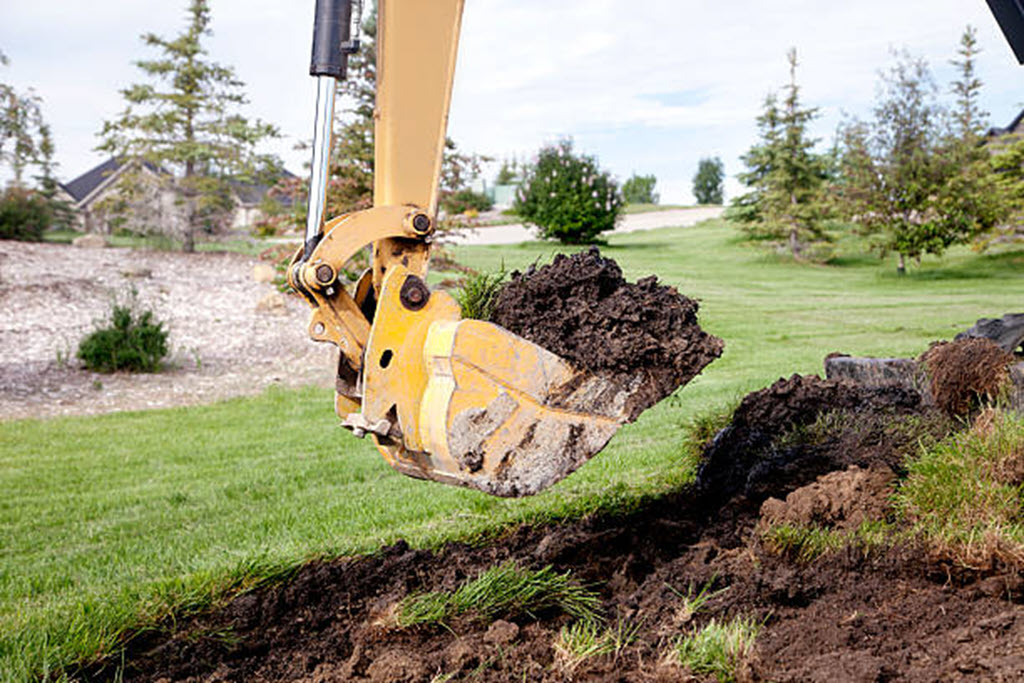Cable Trenchingsin Utica MI
Cable Trenching Done Right for Secure Utility Installations
We Are Locally Owned & Operated For Over 37 Years
Contact Us Today!
We Serve Businesses In And Around The Following Cities:
About Cable Trenchings
Introduction to Cable Trenching in Utica
The dynamic city of Utica, commonly known for its rich history, bustling economy, and thriving commercial scene, also presents a unique set of challenges when it comes to infrastructure development. One critical aspect of this landscape is the largely hidden, yet essential, aspect of cable trenching. This service plays a pivotal role when it comes to setting up utility lines for buildings, offices, warehouses, and other commercial properties. Whether for electrical wiring, telecommunication cables, or utility lines, cable trenching offers a tailored solution for safely installing and managing the critical conduits of day-to-day business operations.
Exploring the Intricacies of Cable Trenching
Cable trenching, being an essential component of the infrastructure setup, involves the precise excavation or creation of a trench for the installation of the aforementioned utility lines. This process requires skilled trenching contractors who have the knowledge and capabilities to perform the job accurately, considering the unique terrain and project requirements.
Utilizing services like those provided by D&J Contracting, a trenching excavation company in Utica, can make a vast difference in commercial projects. With experience and the advantage of local knowledge, D&J Contracting can prove indispensable for all trenching needs, including complex requirements such as a trench for propane line or exhaustive trenching for utilities.
The Importance and Benefits of Cable Trenching
Indeed, with the right trenching contractor, several benefits are brought to the table. First and foremost is efficiency. The accuracy of trench digging ensures minimized disruption to the surrounding terrain, reducing any unnecessary costs and delays associated with rectification work. Successful trenching often depends on the ability to dig accurate and appropriate trenches that meet the project’s unique demands.
The services of an experienced trench digger contractor also safeguard the integrity of the utility lines being installed, reducing the risk of potential damages during excavation. This safety can be particularly important when we speak of trenching for utilities in a busy city like Utica. Furthermore, a qualified trenching contractor can provide trenching and boring contractors to meet various project needs, thereby offering a one-stop solution for projects of varying complexity levels.
Real-World Applications of Cable Trenching in Utica
In the real world, the expertise of trenching contractors near Utica extends far beyond mere utility installation. We could consider the case of a local business expanding its operation and needing additional telecommunications capabilities. A professional trenching contractor would make a proper assessment, create a trenching plan, and execute it proficiently with minimum disruption to business operations.
Similarly, for a warehouse requiring a trench for a propane line, it would be invaluable to have a trenching contractor who understands the specific attributes of the local area, including weather patterns and soil composition. In such situations, a trusted contractor such as D&J Contracting, with their comprehensive trench digging services, could be an ideal choice.
In addition, cable trenching plays a critical role in Utica’s urban development projects, effectively contributing towards a modern city infrastructure. Be it erecting new commercial buildings, setting up data centers or simply revamping old structures, the input of trenching excavation companies remains indispensable at every stage.
Choosing the Right Partner for Cable Trenching in Utica
Ultimately, the selection of the right partner for carrying out cable trenching in Utica is vital. Whether it’s for a narrowly defined job like a trench for a propane line or a large-scale utility line trenching project, the right trenching contractors are central to the job. An experienced and reliable firm such as D&J Contracting, with their diversified expertise and local know-how, can provide the edge needed for successful completion of the work.
As we reflect upon cable trenching in Utica, it’s clear that this service holds immense value for commercial properties. It ensures a reliable path for utilities, safeguards against possible damage to these lines, and brings efficiency and safety to the whole construction process. With its significance firmly established, businesses would profit greatly by partnering with expert trench digging contractors, such as D&J Contracting – ensuring their utilities are placed securely underground, and ready to serve their commercial needs.
Cable Trenchings Gallery


Call Us Today to receive your Free Quote for
Cable Trenching in Utica
Serving: Utica, Michigan

About Utica, Michigan
The city now known as Utica was platted by Joseph Stead in 1829, who named it “Harlow”. Others referred to the community as “Hog’s Hollow” or “McDougalville”, until a few years later it was named “Utica” by settlers from New York, in honor of the city of the same name in that state. This was common of settlers in this region, and is reflected in the names of nearby cities such as Rochester, Troy, and Livonia that are also named for New York cities.
By the 1940s, Utica was the center of a region of dairy farms and truck gardens. It had a flour mill and shipped rhubarb. Dodge Park a few miles south on the Clinton River was a state park.
As the 1950s progressed, Detroit auto companies began to build factories in neighboring Sterling and Shelby Townships, and the surrounding area began a transformation to an industrial economy.
Utica boasts a small historic district centered on Cass Avenue and Auburn Road, but few of the buildings predate 1906, due to destructive fires in 1905 and 1906.
Utica is in western Macomb County, bordered to the south by the city of Sterling Heights and to the north by Shelby Charter Township. Highways M-53 and M-59 serve the city. M-53 crosses the east side of the city, leading north 13 miles (21 km) to Romeo and south 8 miles (13 km) to Warren, while M-59 runs along the southern border of the city, leading east 8 miles (13 km) to Interstate 94 and west 15 miles (24 km) to Pontiac. Downtown Detroit is 21 miles (34 km) to the south.
According to the U.S. Census Bureau, Utica has a total area of 1.78 square miles (4.61 km), of which 0.02 square miles (0.05 km) are water. The Clinton River passes through the center of the city, flowing southeast and then east to Lake St. Clair.
| Census | Pop. | Note | %± |
|---|---|---|---|
| 1880 | 493 | — | |
| 1890 | 563 | 14.2% | |
| 1900 | 562 | −0.2% | |
| 1910 | 496 | −11.7% | |
| 1920 | 588 | 18.5% | |
| 1930 | 873 | 48.5% | |
| 1940 | 1,022 | 17.1% | |
| 1950 | 1,196 | 17.0% | |
| 1960 | 1,454 | 21.6% | |
| 1970 | 3,504 | 141.0% | |
| 1980 | 5,282 | 50.7% | |
| 1990 | 5,081 | −3.8% | |
| 2000 | 4,577 | −9.9% | |
| 2010 | 4,757 | 3.9% | |
| 2020 | 5,245 | 10.3% | |
| U.S. Decennial Census | |||
As of the census of 2010, there were 4,757 people, 2,218 households, and 1,245 families living in the city. The population density was 2,781.9 inhabitants per square mile (1,074.1/km). There were 2,463 housing units at an average density of 1,440.4 per square mile (556.1/km). The racial makeup of the city was 90.4% White, 1.9% African American, 0.5% Native American, 3.5% Asian, 1.9% from other races, and 1.8% from two or more races. Hispanic or Latino of any race were 3.8% of the population.
There were 2,218 households, of which 23.6% had children under the age of 18 living with them, 37.8% were married couples living together, 14.0% had a female householder with no husband present, 4.3% had a male householder with no wife present, and 43.9% were non-families. 38.0% of all households were made up of individuals, and 15.9% had someone living alone who was 65 years of age or older. The average household size was 2.13 and the average family size was 2.80.
The median age in the city was 41.7 years. 17.9% of residents were under the age of 18; 8.8% were between the ages of 18 and 24; 27.4% were from 25 to 44; 28.3% were from 45 to 64; and 17.4% were 65 years of age or older. The gender makeup of the city was 47.4% male and 52.6% female.
As of the census of 2000, there were 4,577 people, 1,952 households, and 1,184 families living in the city. The population density was 2,578.2 inhabitants per square mile (995.4/km). There were 2,005 housing units at an average density of 1,129.4 per square mile (436.1/km). The racial makeup of the city was 93.77% White, 0.92% African American, 0.37% Native American, 2.56% Asian, 0.74% from other races, and 1.64% from two or more races. Hispanic or Latino of any race were 2.10% of the population.
There were 1,952 households, out of which 27.2% had children under the age of 18 living with them, 43.8% were married couples living together, 13.3% had a female householder with no husband present, and 39.3% were non-families. 34.2% of all households were made up of individuals, and 10.8% had someone living alone who was 65 years of age or older. The average household size was 2.29 and the average family size was 2.96.
In the city, the population dispersal was 21.0% under the age of 18, 9.6% from 18 to 24, 31.7% from 25 to 44, 23.2% from 45 to 64, and 14.5% who were 65 years of age or older. The median age was 37 years. For every 100 females, there were 92.9 males. For every 100 females age 18 and over, there were 91.8 males.
The median income for a household in the city was $38,683, and the median income for a family was $57,156. Males had a median income of $36,912 versus $26,353 for females. The per capita income for the city was $21,615. About 4.8% of families and 7.0% of the population were below the poverty line, including 6.7% of those under age 18 and 17.3% of those age 65 or over.
Utica Community Schools operates public schools, including Utica High School, Eppler Junior High School Flickinger Elementary School, and Wiley Elementary School. They serve the communities of Sterling Heights, Utica, and Shelby Township.
Call Us Today to receive your Free Quote for
Cable Trenching in Utica
Related Services in Utica, Michigan
We Serve Businesses In The Following Zip Codes:
48007, 48015, 48021, 48026, 48035, 48036, 48038, 48042, 48043, 48044, 48045, 48046, 48047, 48048, 48050, 48051, 48066, 48071, 48080, 48081, 48082, 48083, 48084, 48085, 48088, 48089, 48090, 48091, 48092, 48093, 48098, 48099, 48225, 48230, 48236, 48310, 48311, 48312, 48313, 48314, 48315, 48316, 48317, 48318, 48397